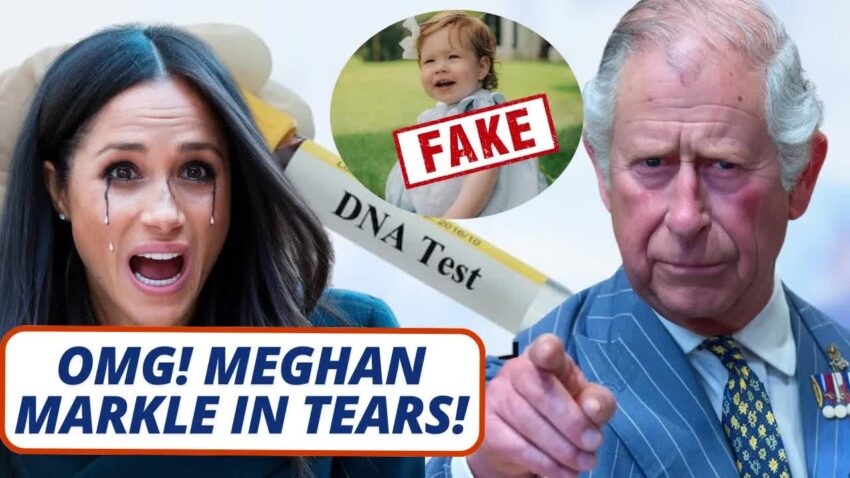In the latest chapter of royal family drama, Meghan Markle’s choice to name her daughter Lilibet has sparked fresh controversy, reportedly leaving the late Queen Elizabeth II quite upset.
According to royal experts, Markle had sought to trademark the name prior to her daughter’s birth, a revelation that has reignited discussions about the Sussexes’ complicated ties with the British monarchy.
These insights come from Robert Hardman’s newly released book, “Charles III: New King, New Court,” which has been serialized by the Daily Mail.
The narrative sheds light on the tensions surrounding Prince Harry and Meghan’s decision to honor the Queen with their daughter’s name, a move that some insiders claim took the monarch by surprise.
Royal biographer Angela Levin didn’t hold back in her criticism of Markle’s alleged actions.
Speaking on GB News, she described the trademarking of the name as “appalling.” Levin suggested that this step was a preemptive attempt to commercialize a name deeply rooted in the royal family’s history, a sentiment that many royal watchers share.
The name Lilibet carries significant emotional weight, as it was a cherished nickname used by Queen Elizabeth II’s family since her childhood.
The origins of the name trace back to her struggles with pronouncing “Elizabeth,” a mispronunciation that her grandfather, King George V, lovingly adopted.
This intimate moniker became a symbol of her personal identity, reserved for her nearest and dearest, including her late husband Prince Philip.
Hardman’s account reveals that the announcement of Lilibet’s name reportedly blindsided the late Queen.
An unnamed palace aide recounted that the Queen expressed considerable anger upon learning of the Sussexes’ public claim that she had endorsed the name choice.
This reaction, noted in 2021, highlights the depth of feeling surrounding what many view as a personal family treasure.
In a poignant moment, the Queen allegedly confided in her aides, stating, “I don’t own the palaces or the paintings, only my name, and now they’ve taken that.” This statement underscores her belief that the nickname was a unique and deeply personal legacy, one that she felt was being appropriated without her consent.
Conflicting reports emerged at the time regarding whether the Queen had actually been consulted before the name was announced.
While some outlets claimed she felt unable to refuse the request, others, including the BBC, indicated that she was not directly approached for approval.
Buckingham Palace has remained tight-lipped on the matter, leaving the truth shrouded in ambiguity.
Amidst these swirling narratives, the Duke and Duchess of Sussex took legal action against several media outlets, disputing claims that the Queen objected to the name.
Their representatives asserted that discussions about the name had indeed taken place, although the specifics of those conversations remain confidential.
The choice to name their daughter Lilibet, coupled with the trademarking move, has fueled ongoing debates about the Sussexes’ relationship with the royal family.
Critics question whether they are attempting to leverage their royal connections while simultaneously distancing themselves from royal duties.
Angela Levin emphasized that the name should have remained a private expression of affection within the royal family.
She pointed out that the name was an intimate part of the Queen’s life, adding, “People who don’t know about that will think that the Queen is supporting this.” Levin’s comments suggest that the Sussexes’ actions could mislead the public into believing there’s royal endorsement behind their commercial pursuits.
As the Sussexes navigate their dual roles as public figures and entrepreneurs, the public’s response remains divided.
Many sympathize with the late Queen’s reported feelings of encroachment on her personal legacy.
Both Buckingham Palace and the Sussexes have been approached for comments on these recent revelations, but no formal statements have been issued.
With royal watchers keenly observing every development, the Sussexes’ approach to balancing their public personas with their royal heritage continues to generate intrigue and debate.
As this story unfolds, the implications of their choices resonate far beyond their immediate family, touching on broader themes of legacy, identity, and the complexities of modern royalty.
